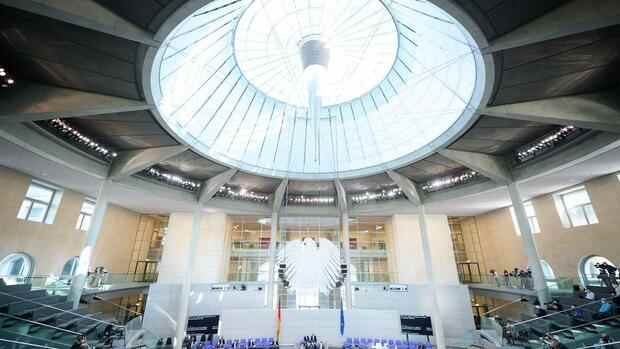Parliamentarians have long debated the new law on the pandemic.
(Photo: IMAGO/Christian Spicker)
It’s finally over on Friday. Then this government has delayed long enough with a change in the law, the effort of which is disproportionate to the benefit. The new Infection Protection Act will not protect against new infections, as the name promises. Rather, it is an infection acceleration law.
What else should happen if the countries’ room for maneuver is limited, but the number of cases is rushing from record to record? With all the consequences, such as long-term corona effects and many deaths, which Health Minister Karl Lauterbach tirelessly points out. His law does little to change that.
Hope for nice weather. But no law is needed for that.
With the new law, however, we are not “returning to normal”, as Justice Minister Marco Buschmann recently exulted. The planned easing does not give that.
Top jobs of the day
Find the best jobs now and
be notified by email.
Most federal states continue with stricter measures after March 20th. This transitional rule only ends in April, but then there is the next loophole for so-called hotspots, in which stricter rules can also be imposed.
>> Read here: Relaxation of the Corona rules: Where the mask requirement will still apply in the future
With this result one wonders what the two ministers negotiated for so long. In any case, the horror of the result is great in all camps. SPD, Greens and FDP are not completely satisfied with the compromise. Doctors and country heads certainly not.
The traffic light parties lack a clear, common course. Instead, the coalition loses itself somewhere between liberal Freedom Day dreams and Lauterbachian caution.
There’s nothing wrong with taking a cautious course if the measures are understandable and have a clearly defined end. To date, however, no one knows exactly which instruments work in which position and how and best. The government doesn’t even know how many people are actually infected and vaccinated. And she never presented a clear exit plan. So the measures seem random and endless.
Lack of political leadership on many issues surrounding the pandemic
But those who decide to lift the measures – as other countries are doing – must clearly state the consequences. How many corona patients and deaths does our society want to accept – knowing full well that corona measures can also have serious social and health consequences?
Such an elementary directional decision cannot be poured into a vague legal text. There is a lack of political leadership here, which Chancellor Olaf Scholz promised at the beginning of his term in office. This can also be seen in other pandemic issues, such as the general obligation to vaccinate.
Here, too, the traffic light coalition has no clear course – and risks a law that ultimately brings nothing but frustration and anger.
More: Home office, mask requirement, 3G: which measures apply after March 20th – and which do not
